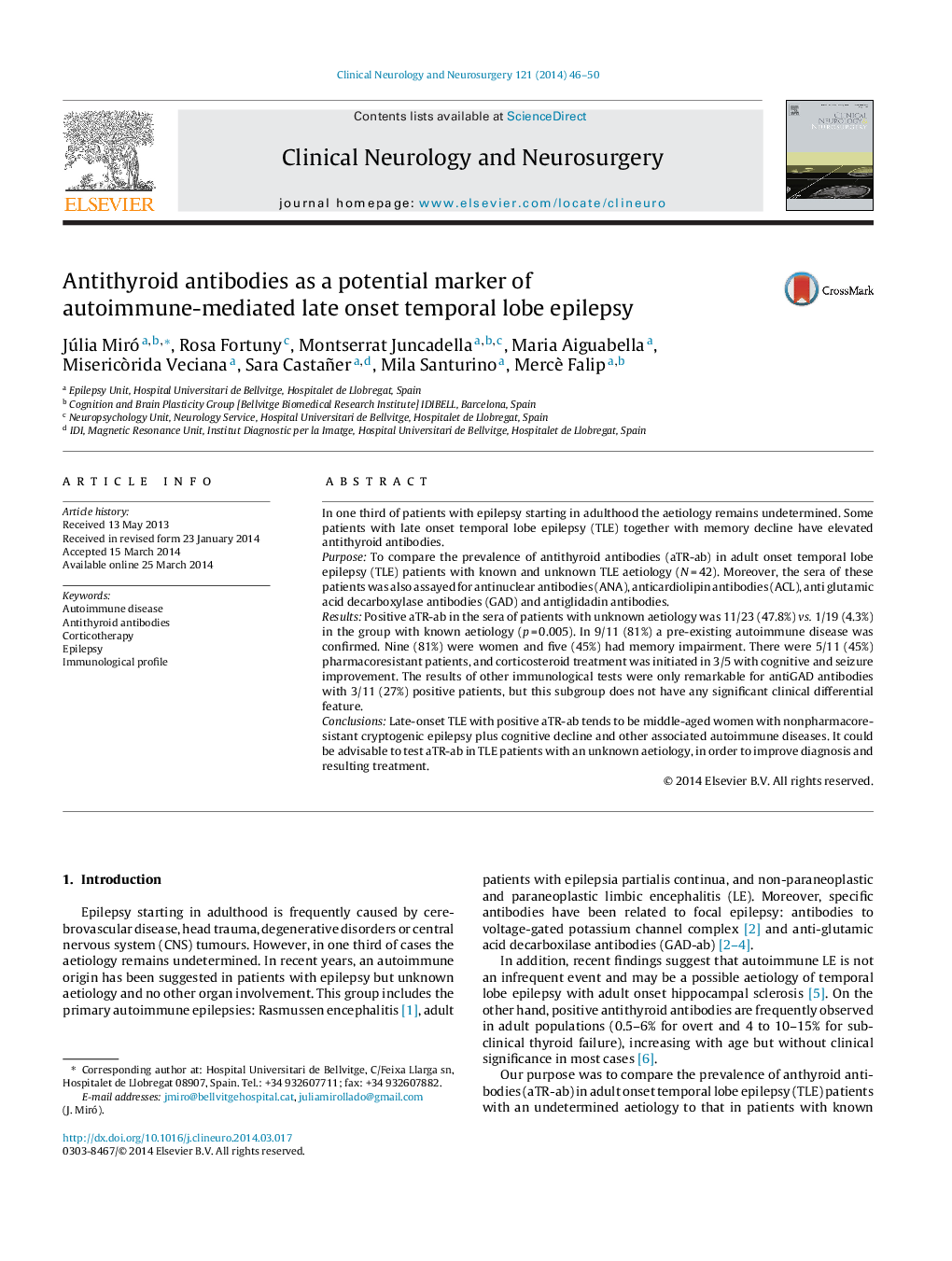| Article ID | Journal | Published Year | Pages | File Type |
|---|---|---|---|---|
| 3040328 | Clinical Neurology and Neurosurgery | 2014 | 5 Pages |
In one third of patients with epilepsy starting in adulthood the aetiology remains undetermined. Some patients with late onset temporal lobe epilepsy (TLE) together with memory decline have elevated antithyroid antibodies.PurposeTo compare the prevalence of antithyroid antibodies (aTR-ab) in adult onset temporal lobe epilepsy (TLE) patients with known and unknown TLE aetiology (N = 42). Moreover, the sera of these patients was also assayed for antinuclear antibodies (ANA), anticardiolipin antibodies (ACL), anti glutamic acid decarboxylase antibodies (GAD) and antiglidadin antibodies.ResultsPositive aTR-ab in the sera of patients with unknown aetiology was 11/23 (47.8%) vs. 1/19 (4.3%) in the group with known aetiology (p = 0.005). In 9/11 (81%) a pre-existing autoimmune disease was confirmed. Nine (81%) were women and five (45%) had memory impairment. There were 5/11 (45%) pharmacoresistant patients, and corticosteroid treatment was initiated in 3/5 with cognitive and seizure improvement. The results of other immunological tests were only remarkable for antiGAD antibodies with 3/11 (27%) positive patients, but this subgroup does not have any significant clinical differential feature.ConclusionsLate-onset TLE with positive aTR-ab tends to be middle-aged women with nonpharmacoresistant cryptogenic epilepsy plus cognitive decline and other associated autoimmune diseases. It could be advisable to test aTR-ab in TLE patients with an unknown aetiology, in order to improve diagnosis and resulting treatment.
